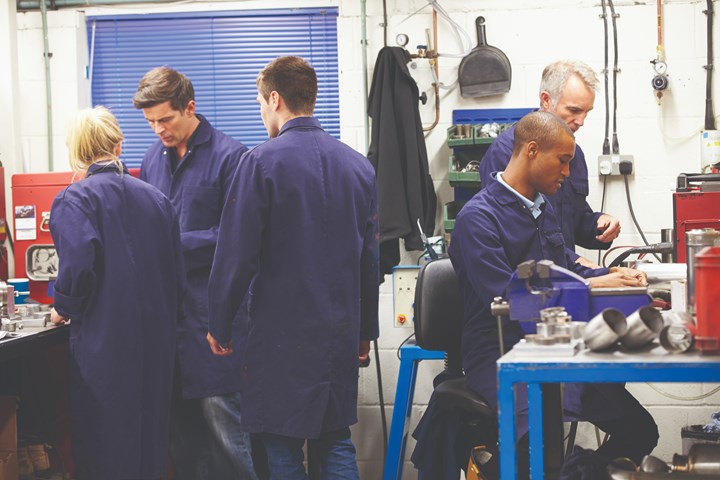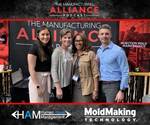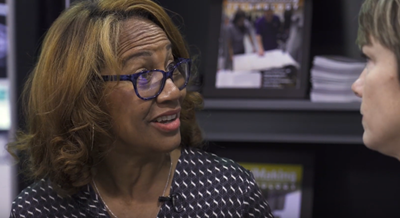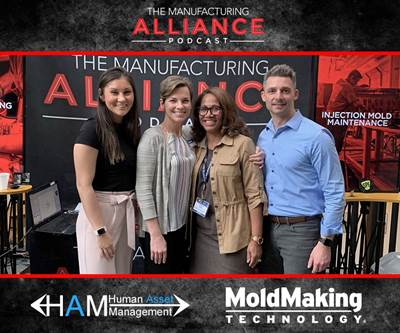MMT Chats: Making the Argument for a Mentoring Program

The top priority for employers right now should be employee engagement, which means genuinely understanding employee sentiments about COVID-19.
Finally, we are unshuttering and returning to work, but with the understanding that things have changed. For one, employees are probably worried about workplace exposure to COVID-19, a possible resurgence, and subsequent shutdown. Crisis teams have worked diligently to ensure shop safety, created new policies, instituted testing and addressed employee questions. However, despite that response, the virus still has some employees wanting to work remotely from home due to childcare situations or just plain fear.
For those employees preparing to return to the workplace physically, flexibility is required. Being adaptable and flexible will help to ensure the mental health of all workers. In the coming weeks, employers and employees will encounter perhaps the most significant and rapid changes to the workplace we have ever encountered. Change management is a struggle for most employers, and implementing such massive modifications to how we work will not be easy.
The top priority for employers right now should be employee engagement, which means genuinely understanding employee sentiments about COVID-19, their challenges returning to the workplace, how to keep the workplace safe and taking action to address employee feedback.
Don’t be surprised by how the conversation may be changing as you make the shift to your new working environment. Some employees may want you to be flexible with your work structure, and this will require open-mindedness as to how your organizational structure will evolve during this pandemic era.
The good news is that employees have confidence that their employers can bring them back to work safely, but that puts a significant burden on employers. Employees want testing, protective gear and careful monitoring of the workforce. These expectations for most companies will be challenging, given the shortages and high costs. And, as the pandemic churns on and your employees settle into their strange new routines, getting acclimated to online meetings and wearing masks, don’t be fooled. Their anxiety hasn’t gone away; it’s most likely just gone underground, which means ownership and management must demonstrate that they care as they continue to engage, inspire and challenge their teams.
Your employees are your essential workers. Show them that you care by creating a mentally healthy workplace culture.
Engage with Mentoring
One strategy for upping employee engagement is a mentorship program. Mentoring can help shops retain employees by offering an individual an additional support resource who can help them manage workplace challenges, learn, develop and grow—all of which play a significant role in employee engagement, especially during trying times like these.
Mentorship programs provide access to training and ownership, which the workforce currently craves. Research from the National Institutes of Health and Lillian T. Eby shows that mentors can enhance the overall well-being of mentees as they listen and offer advice during times of stress, provide direction and clarity for personal and job-related issues and fuel their self-confidence with a sense of purpose.
I can speak from personal experience that mental health is—and will continue to be—a vital component of every shop environment. Employee concerns with privacy and perceptions are real. All of my work involves manufacturing companies, so I have seen firsthand the impact of COVID-19 on the mental health of the manufacturing workforce. My company, Human Asset Management (Flossmoor, Illinois), helps leadership and human resources personnel to navigate disruptions by establishing a healthy culture, so shops can be more productive and retain more employees.
For example, in the case of COVID-19, employees may be reluctant to come forward with their anxiety, but that doesn’t mean that the company is off the hook. Remember, your employees are your essential workers who keep your organizations up and running. They are the heroes of your workplace. Show them that you care by creating a mentally healthy workplace culture. This level of support from peers and leaders aligns with the fundamental aspects of the way to well-being: to connect with others.
Mentorship may be a way to work this into your culture as a middle ground for shops. The evidence shows that feeling close to and valued by other people is a fundamental human need and one that contributes to higher productivity at work. Let your workplace become a positive influence on your employees’ psychological well-being.
Related Content
MMT Chats: 5 in 5 with Best Tool and Engineering
MoldMaking Technology Editorial Director Christina Fuges reveals 5 best practices for improving efficiencies within shops...in 5 minutes. Our guest is Joe Cherluck, President of Best Tool and Engineering in Clinton Township, Michigan.
Read MoreDynamic Tool Corporation – Creating the Team to Move Moldmaking Into the Future
For 40+ years, Dynamic Tool Corp. has offered precision tooling, emphasizing education, mentoring and innovation. The company is committed to excellence, integrity, safety and customer service, as well as inspiring growth and quality in manufacturing.
Read MoreHow to Solve Hot Runner Challenges When Molding with Bioresins
A review of the considerations and adaptations required to design hot runners and implement highly productive injection molding operations.
Read MoreMMT Chats: The Connection Between Additive Manufacturing Education and ROI
This MMT Chat continues the conversation with Action Mold and Machining, as two members of the Additive Manufacturing team dig a little deeper into AM education, AM’s return on investment and the facility and equipment requirements to implement AM properly.
Read MoreRead Next
Planning for the 2030 Workforce Challenge
Christina Fuges and Marion Wells of Human Asset Management discuss what the year 2030 means to mold builders, the importance of shop culture to workforce development and a collaborative project on mentorship.
Read MorePODCAST: Planning for the 2030 Workforce Crisis
Listen in as I sit down with The Manufacturing Alliance and Marion Wells of Human Asset Management to record a podcast all about our skilled workforce crisis: the 2030.
Read More2020-2023 Editorial Advisory Board: Meet New Board Member Marion Wells
The 2020-2023 version of MoldMaking Technology's EAB features a new crew of 12 industry professionals. Here's one of them.
Read More





















